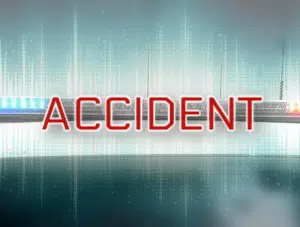(Area)Summit Carbon Solutions recently finished a round of mandatory public information meetings in Iowa counties that will be affected by the second phase of the company’s proposed carbon pipeline.
Despite the lengthy and widely attended meetings, some community members said they were unsatisfied with answers from Summit Carbon representatives.
Kathy Carter, an affected landowner from Floyd County who has been a vocal opponent of the pipeline, said in an email to the Capital Dispatch, “Summit excels at either simply not answering questions, or doing so in such a way as to leave the heart of the question unanswered and people confused.”
A number of citizens have submitted customer objections to the Iowa Utilities Commission with complaints about the Summit Carbon’s responses to community questions.
Sabrina Zenor, the director of corporate communications and stakeholder engagement for Summit Carbon Solutions, said the Summit team did a “great job engaging with the public.”
“It’s our responsibility to answer public questions and participate in informational meetings, ensuring communities have access to essential information,” Zenor said in an emailed statement.
Iowa Capital Dispatch received numerous emails from readers with questions about the pipeline and the public information meetings, which have been gathered and condensed for clarity here.
Summit Carbon Solutions and the Iowa Utilities Commission provided emailed responses to the questions.
Summit Carbon Solutions responded to the following questions, unless otherwise noted.
Who are Summit Carbon’s co-founders?
Summit Carbon Solutions was founded by Summit Agricultural Group, a private equity firm based in Alden, IA.
Context: Readers noted that Bruce Rastetter, founder of Summit Agricultural Group, has been listed as a “co-founder” of Summit Carbon Solutions, in various articles, but they have never seen mention of other co-founders. Summit Carbon was founded by Summit Agricultural Group, spearheaded by Rastetter.
Do you have a published list of project funders?
TPG Rise, Continental Resources, Tiger Infrastructure Partners, John Deere, and SK Group are our largest investors. Additionally, we have hundreds of smaller individual investors, a significant portion of which are Iowa farmers and business owners. Out of basic respect of their privacy we’re not at liberty to share their details.
How many Iowa residents does Summit Carbon assume would be employed during the construction phase?
The construction of the Summit Carbon Solutions pipeline in Iowa will create significant employment opportunities, particularly for skilled technical workers. During construction, there will be thousands of local jobs available. Contractors will prioritize hiring Iowa residents where possible, ensuring local workers benefit from these opportunities.
Does Summit have plume modeling that would show the areas that would be impacted by potential leaks or fractures? And will that information be made available to affected communities?
We follow all federal and state requirements, including those set by (U.S. Pipeline and Hazardous Materials Safety Administration) PHMSA, (Transportation Security Administration) TSA, and state utility commissions.
Dispersion models incorporate complex, technical analysis based on a multitude of assumptions. These model outputs are essential for determining risk in High Consequence Areas (HCA), as defined by PHMSA. Summit Carbon Solutions’ dispersion modeling is regulated and auditable by PHMSA. We go above and beyond by modeling across the entire pipeline system versus only in HCAs, which allows us to design safety features and protective measures into the pipeline design, construction, and operation. This includes placing the pipe at a lower depth, implementing closer valve spacing in HCAs, employing a state-of-the-art leak detection system, and conducting 100% non-destructive testing of welds.
Dispersion models also guide the development of our integrity management program (IMP) to ensure safe and reliable operation of the pipelines. IMP examples include cathodic protection, periodic in-line inspections (using smart tools), aerial inspections, and depth of cover surveys. Additionally, the outputs from dispersion models are used to develop emergency response plans with first responders. This planning is done for every mile of the pipeline, not just for High Consequence Areas.
Furthermore, the outputs inform our public awareness programs, which educate people about the properties and characteristics of CO2, the hazards associated with the pipeline, preventative measures, leak recognition and response, one-call requirements, and how to contact the pipeline company. This information is shared with people along the route, the general public, local officials, emergency responders, and excavation contractors.
Dispersion modeling is also used as a risk analysis tool to assess security risks to the pipeline system through Security Vulnerability Assessments, helping us harden facilities where necessary.
Summit Carbon recently announced a “Fall Safety Tour” of public events throughout the month of November.
How long is Summit Carbon committed to operating this pipeline? Is there reassurance that this pipeline would always and only transport CO2 if Summit Carbon left?
Summit Carbon Solutions is developing this state-of-the-art pipeline system with the expectations that it will be operational for decades. Our permits and easements explicitly state we are transporting CO2 (and only CO2), and a change in service would require approval from state regulatory agencies. — Summit Carbon Solutions
Under Iowa Code 479B.14, the IUC has the authority to grant a permit for 25 years and a renewal petition (application) can be filed before the 25 year timeframe expires. This section of Iowa law also addresses limitations, sale or transfer, records, and extension of permits. — Iowa Utilities Commission
How does Summit Carbon plan to continue communication with communities that will be affected by the pipeline? Will there be future outreach meetings beyond the ones required by IUC?
In the near term, we have scheduled additional safety meetings along the pipeline route to provide landowners and community members with opportunities for more private, focused discussions about safety. These sessions will allow attendees to engage directly with subject matter experts in a comfortable, low-pressure setting, ensuring their questions are fully addressed.
We are also continuing to organize meetings with emergency responders, county commissioners, and other local stakeholders. Summit Carbon Solutions is committed to fostering open and ongoing dialogue.
Looking ahead, we will maintain a strong commitment to public engagement by conducting a comprehensive public awareness campaign throughout the pipeline’s operation, in compliance with PHMSA’s regulatory requirements. Open communication will remain a priority as we move forward.
Will Summit Carbon seek well permits through any of the counties the pipeline would cross through?
Where necessary, we will apply for water usage permits, which are evaluated and approved at the state level, through the Department of Natural Resources.
If a leak in the pipeline were to occur, what is the emergency response protocol? Would this be from local first responders? And does Summit Carbon know how long it would take to respond to an event like this?
The pipeline system is equipped with a leak detection system, that continuously monitors the flow rate, temperature, and pressure of all segments of the pipeline. The leak detection system continuously communicates with a control center that is staffed 24/7/365. In the unlikely event of a pipeline release, various PHMSA regulations come into play. The control center has the ability to remotely shut down the pipeline and close valves to isolate the affected area. The control center is also required to notify first responders in the area. This will trigger the initiation of the Emergency Response Plan.
Each County will have a unique Emergency Response Plan based on the systems and capabilities of that specific County. The Emergency Response Plan will be developed and built out by Summit Carbon Solutions and First Responders. Compliant with PHMSA regulation, training, including Response Plan review, will be conducted for First Responders annually but not exceeding 15 months.
Local First Responders will be trained to carry out emergency procedures, understand the characteristics of CO2, recognize conditions that are likely to cause emergencies, and to take steps necessary to control the situation. Summit Carbon Solutions personnel that will live and work across the pipeline system, will also be trained as emergency responders. Similar to the Emergency Response Plan, a review of the training program and additional training will be completed at intervals not exceeding 15 months, but at least once each calendar year. Summit Carbon Solutions has already begun working with the Emergency Managers in each County to determine capabilities and who should attend these trainings.
The following questions were answered by Don Tormey, communications director for Iowa Utilities Commission.
Does the presiding commission member at the informational meetings have to submit any sort of report to the commissioners?
No, not to the Commissioners. The Commission’s presiding officer informs meeting attendees that they will be checking to make sure the company is presenting the information about the proposed project that is required under IUC rules 199-IAC-13.2(6). After completion of the meeting, the checklist for the specific meeting location is then filed by the presiding officer in the proposed project’s specific IUC docket.
Does public comment at these meetings in any way go into the commission’s decision making process towards granting or denying a permit application?
Meeting attendee comments are not part of the official record in the IUC docket of the proposed project. Iowa code section 479B.4(3) states, “No formal record of the meeting shall be required.” The info meeting is not a public hearing. When the IUC conducts its public evidentiary hearing, that is the time for evidence and testimony to be reviewed or presented for IUC consideration on the totality of the proposed project.
At the start of every informational meeting, the IUC presiding officer will give a presentation about the IUC’s process for reviewing a proposed pipeline project. Part of the presentation addresses comments and those note that any affected landowner can file comments either for or against the proposed pipeline as part of the IUC’s review process, that phone calls or verbal communication will not be considered as part of the official docket record, and only written comments will be considered by the Commission. The presiding officer also informs meeting attendees that comments may be filed at any time in the docket and information is provided to all attendees on how to file a comment with the IUC and is also distributed to each attendee via a packet of IUC information materials.
What are the obligations of an applicant during mandatory informational outreach meetings? Do they just have to occur, or is the applicant, in this case Summit Carbon, obligated to answer and address public concerns?
For public informational meetings regarding a proposed hazardous liquid pipeline (HLP) project in Iowa, any applicant (Summit Carbon in this case) must follow the requirements under Iowa law in Iowa Code 479B.4 and the IUC’s administrative rules at 199 Iowa Administrative Code chapter 13 (specifically 13.2). The informational meetings are to provide an opportunity for the company to provide basic, introductory information about the proposed project and to provide information about the processes and procedures undertaken by the IUC for such a project. The question and answer portion at the end of an informational meeting is to allow affected persons a chance to ask general questions to the company about the proposed project or to the IUC about the procedure. The informational meeting is not the evidentiary hearing. That will occur later in the process. The informational meeting is the very first step in the process for a pipeline company to seek a pipeline permit.
Why are Iowa Utilities Commissioners not required to be at these events and hear concerns of the community?
Iowa Code 479B.4(3) states, “A member of the board, or a person designated by the board, shall serve as the presiding officer at each meeting and present an agenda for the meeting which shall include a summary of the legal rights of the affected landowners. No formal record of the meeting shall be required.”
Is there public record taken on behalf of IUC at these meetings? If no, why not?
No formal record of the meeting is required.
Can the easements acquired by Summit be used for additional pipelines in the future? If yes, what would the process be if an additional pipeline wanted to use the easements?
It depends on the language of the individualized easement as to whether an additional pipeline could be located on the same easement. Should a pipeline company seek to construct another pipeline in the same easement, under Iowa Code Chapter 479B and the IUC’s administrative rules at 199-chapter 13, the pipeline company would have to file a request for IUC review regarding any new pipeline or extension of an existing pipeline.
How does the commission work to protect Iowans?
The IUC is an independent quasi-judicial regulatory agency. The IUC regulates the rates, safety, and service of certain utility companies in Iowa. The IUC is also charged with issuing permits for various types of energy infrastructure projects under Iowa law. The IUC’s decisions are based on evidence and the law, and IUC actions may be reviewed by the courts. The IUC is not an advocate for any person, landowner, or party. The IUC acts as a neutral decision maker to determine whether a proposed pipeline promotes the public convenience and necessity and meets other requirements of Iowa law. In addition, the IUC cannot serve as a legal advisor to any party.













